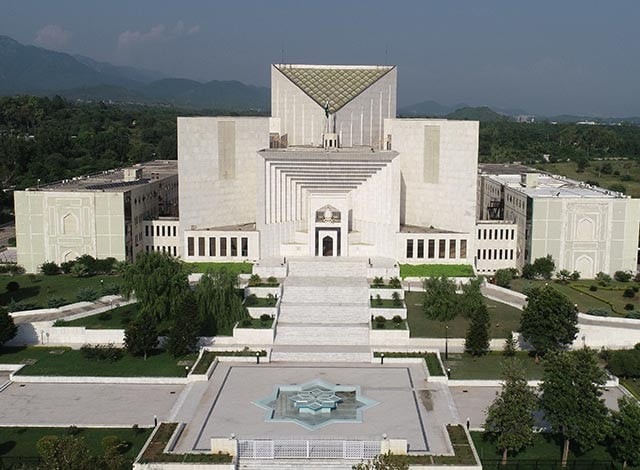PPP challenges Supreme Court ruling on reserved seat after PML-N
PPP objects to granting reserved seats to PTI, arguing that it had not claimed any entitlement to them

The Pakistan People's Party (PPP) challenged on Tuesday the July 12 verdict of the apex court on reserved seats, a week after the Pakistan Muslim League-Nawaz (PML-N) submitted its review petition.
The Supreme Court (SC) on July 12 announced its decision that reserved seats be allocated to PTI, reversing previous rulings by the Peshawar High Court and the Election Commission of Pakistan (ECP) and declaring that PTI is eligible for the reserved seats for women and minorities.
This ruling came after the Sunni Ittehad Council (SIC), backed by PTI, filed appeals against the ECP's decision and the PHC's subsequent affirmation of that decision. The SIC argued that the denial was unconstitutional and sought the allocation of 77 reserved seats that were originally assigned to other parties within the ruling coalition.
The decision received backlash from the ruling coalition, with Punjab Chief Minister Maryam Nawaz expressing her surprise and questioning the legitimacy of reinstating individuals she described as "criminals of the nation.
Read Reserved seats: SC verdict and aftermath
Represented by Farooq H. Naek, the PPP's review petition seeks to overturn the July 12 decision that previously annulled the decisions of the Peshawar High Court and the Election Commission, directing that the reserved seats be allocated to PTI. This ruling affirmed PTI's status as a legitimate party within the Parliament and provincial assemblies.
The SC's Practice and Procedure Committee has scheduled the hearing of the review petitions for after the September holidays.
However, Chief Justice Qazi Faez Isa, dissenting from the majority decision, argued that the summer holidays should be cancelled to address the review petitions promptly.
He emphasized that the Constitution should take precedence over the convenience of judges, stating that delaying the hearing would be unjust.



















COMMENTS
Comments are moderated and generally will be posted if they are on-topic and not abusive.
For more information, please see our Comments FAQ